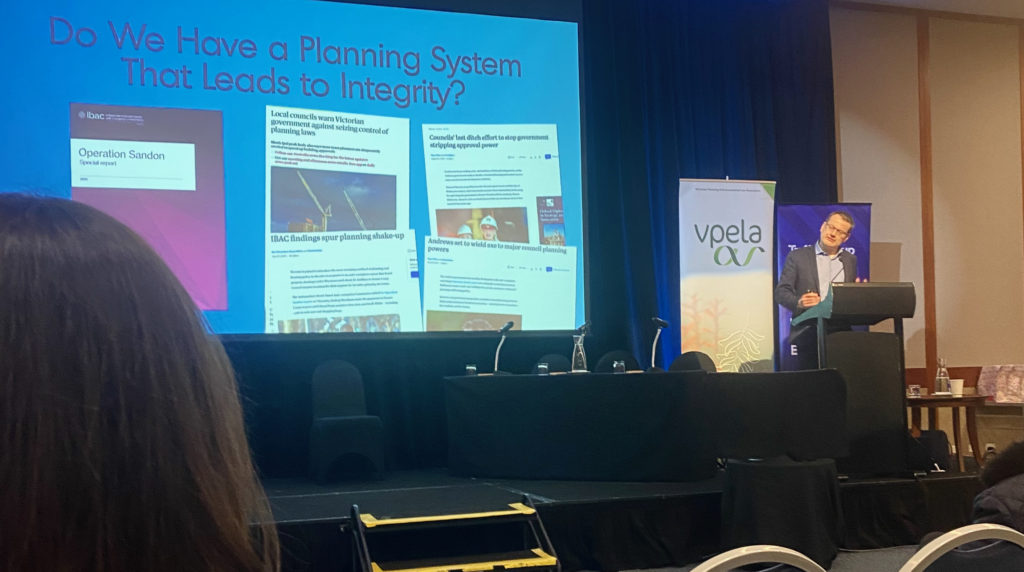
The Operation Sandon Special Report, released in July by the Independent Broad-Based Anti-Corruption Commission, is vital reading for all Victorian planners and allied professionals. This is not so much for its findings about the matters at Casey that prompted the investigation, but instead for its timely centring of the issue of integrity in the discussion of planning system reform.
Planning system reform is frequently framed primarily through a lens of red-tape reduction that sees increased system efficiency as its primary goal. However more balanced system reviews have also recognised that it is vital to maintain system effectiveness – after all, no level of regulatory burden is warranted if the planning system is not achieving the policy outcomes it is there to achieve.
However the Sandon report is an important reminder of the third key pillar of any balanced system reform package: transparency and integrity. While some system reviews have commendably highlighted this as a key focus – notably 2003’s Better Decisions Faster and the 2017 review of the Victorian Planning system by the Auditor-General – too often this aspect of system design has passed unremarked.
Continue reading

